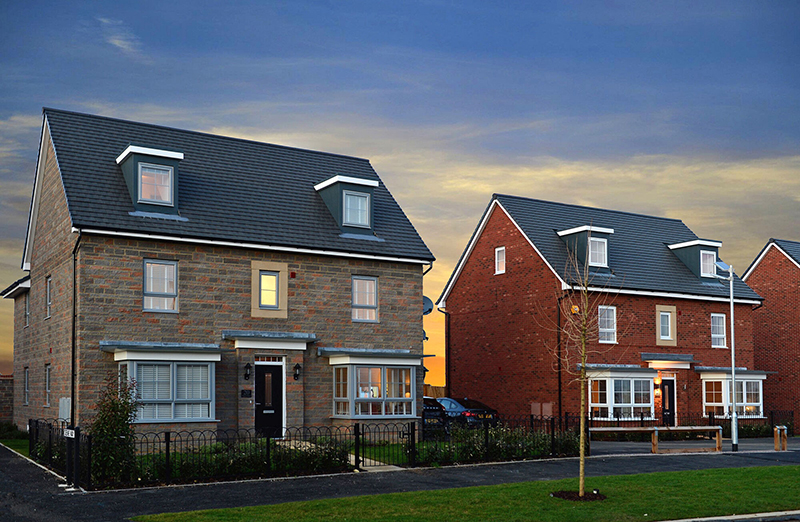
Dan Hancox, corporate sustainability and development director at Russell Roof Tiles, delves into how pitched concrete roof tiles can offer a sustainable solution, as the construction industry looks to stay on track with Scotland’s net zero 2045 targets
THE focus on sustainability in the construction sector is more prominent than ever, and with the ambitious targets set for Scotland to achieve net zero status by 2045, ahead of many other countries, all sectors are having to closely monitor progress and adapt strategies to ensure they stay on track.
The construction industry is one such sector that plays an integral part in Scotland’s journey to net zero, itself being responsible for over 10% of greenhouse gas emissions. As the Climate Change Committee (CCC) expresses doubt that the country is able to stay on track and meet its first interim target of a 75% emissions reduction by 2030, all sectors must make continued strategic adjustments to remain on course and close the gap on the goal.
Sourcing sustainable products
Our sector needs to invest in materials and processes with lower carbon footprints to produce fewer emissions and support the country’s challenging climate goals.
When it comes to roofing, concrete roof tiles can offer a more sustainable solution. Typically, they require less energy for production than their clay counterparts; since clay needs to be fired in a kiln at a much higher temperature for up to two days, whereas concrete only needs to be cured for around 24 hours at a much lower temperature, amounting to a 30% reduction in energy usage.
Specifically thinner leading-edge concrete roof tiles can be a really good sustainable roofing solution. Generally, these tiles use 15% less raw materials than a standard concrete roof tile and the product has less depth. This means that around 20% more tiles can be packed onto a pallet which equates to a much lower carbon footprint when transporting them. Alongside this they offer easy installation, are aesthetically pleasing, require very little maintenance and can be used with renewable energy systems like solar panels – making them a great option for planners and developers.
However, sustainability goes beyond just products, it is about ensuring every part of the supply chain is doing more to be energy efficient and reduce emissions.
These can be small changes such as using recycled packaging, signing up to a pallet return scheme or even making the switch to electric equipment where possible, which is something that Russell Roof Tiles have done to reduce emissions across its sites by investing in a fleet of electric forklifts.
As a prominent manufacturer of concrete pitched roof tiles, the company has made major investments in sustainability across its three sites and are proud to be leading the task force to analyse new initiatives and develop methods that can help us foster a more sustainable future for the construction industry.
Working with external sustainability advisors such as Planet Mark, Russell Roof Tiles has conducted an in-depth assessment of its environmental impact throughout its production and delivery operations. This review follows the Greenhouse Gas Protocol and considers all Scope 1, 2 & 3 components, including transportation.
All of the timber pallets used to transport goods are FSC-approved, and the logistics team work to consolidate delivery shipments to reduce our fleet emissions. Russell Roof Tiles has also redesigned its packaging with increased amounts of recycled material, in an effort to make the entire process more sustainable.
Russell Roof Tiles has always been at the forefront of sustainability and was the first UK roof tile manufacturer to have achieved an ‘Excellent’ rating for responsible sourcing. Last year, the company also announced plans to become a net zero business by
2040.








